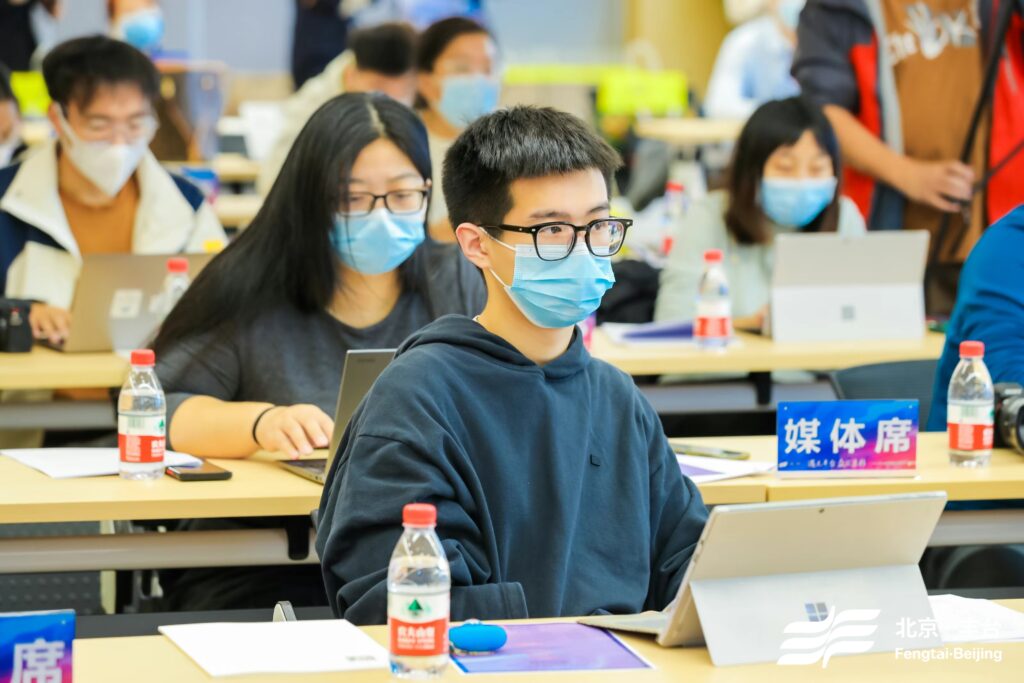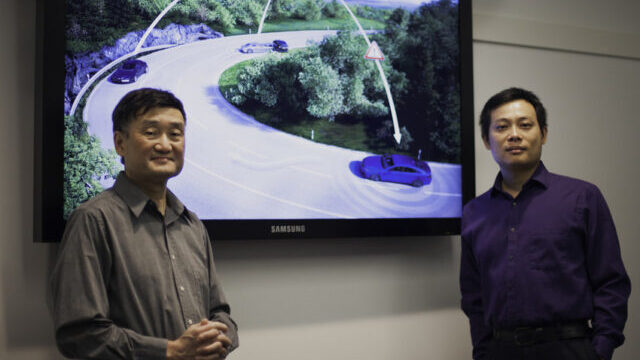
Adapting journalism in the AI era: the role of knowledge management
Introduction
Before I enrolled in the Master of Science in Knowledge Management at the Wee Kim Wee School of Communication and Information at Nanyang Technological University, I worked as a journalist for a media company in Beijing. When ChatGPT was released in 2022, not only did we keep a close eye on it and cover it extensively, but more importantly, my colleagues and I shared a common concern: with the rapid development of social media and AI technology, could the profession of journalism be replaced by AI, leading to its extinction? Throughout my study of knowledge management (KM), this question has often prompted me to reflect. I hope to enhance my competitiveness as a journalist through KM.

1. Challenges faced by traditional media
Traditional media, a term that contrasts with the online media that has emerged in recent years, primarily includes newspapers, radio, magazines, television, and other media forms. However, with the widespread adoption of new electronic devices such as smartphones, computers, and tablets, the public now has more ways to access news. Traditional gatekeepers used to control the market, restricting access unless consumers paid, and dictating what was provided and when. These powerful organizations are now under threat from new but equally powerful organizations that provide instant access to huge ranges of media content, often for free or a minimal charge. This change in the marketplace1 means that traditional media organizations have to adapt or else face falling revenues. On the other hand, the development of the internet has also given rise to the emergence of social media. In the digital age, everyone can use mobile devices to record news events around them and disseminate this information online, quickly attracting a significant amount of attention. This further narrows the living space for traditional media.
Internet technology has also transformed the methods of news gathering and reporting. For instance, web scraping technology is widely applied in news reporting. Web scraping2 is the process of extracting content from human-readable websites in order to import it into local storage such as databases or CSV files. Web scraping technology enables news editors to quickly capture news information and automatically publish important news, making the entire process more convenient and automated. This significantly enhances the timeliness of news, which is one of the most fundamental and important characteristics of news. As a result, media outlets that do not utilize web scraping technology often struggle to compete with those that do in terms of news timeliness.
Additionally, AI technology could pose employment threats to journalists. AI is already capable of generating simple news reports with a higher level of automation and speed, potentially replacing some journalist and editor positions.

2. Limitations of applying internet technology to news reporting
However, at present, completely replacing journalists with AI and web scraping technologies faces some challenges, or rather, journalists still possess competitive advantages in certain aspects.
As mentioned earlier, current internet technologies can organize language for some simple news content and publish it rapidly and automatically. However, for more complex and in-depth news, such as policy interpretations, wars, crimes, and other ethically related news, journalists need strong professional qualities to report comprehensively from multiple perspectives and interview experts for interpretations, tasks that AI cannot yet replace.
Moreover, news reporting seeks not only timeliness but also truthfulness and accuracy. Media outlets with a good social reputation and authority have gained public recognition through years of accurate reporting. Currently, the accuracy of AI-produced news is not high, meaning that before AI can achieve greater improvements, the method of AI-generated news is unlikely to gain widespread acceptance in the news industry. Even if AI-produced news eventually gains acceptance within the media industry, it may still require manual editorial review before news can be finally published.
In summary, compared to professional journalists, AI-generated news currently faces challenges such as difficulty in handling complex news stories, inability to interview news subjects and experts, lack of ethical judgment, and insufficient accuracy in news reporting.
3. How knowledge management can enhance journalists’ professional skills
Although AI is currently unable to replace the role of professional journalists, the rise of new media and the development of internet technology still impart a sense of urgency for media practitioners to enhance their professional skills. I believe that KM strategies are effective ways to help journalists tackle the challenges posed by today’s AI technology.
KM is the process of capturing and making use of a firm’s collective expertise anywhere in the business- on paper, in documents, in databases (called explicit knowledge), or in people’s heads (called tacit knowledge)3. The purpose of KM is to improve individual efficiency and enhance the competitiveness of the company. By adopting the following KM strategies, journalists can boost their competitiveness and better address the potential competition from AI technology:
3.1 KM helps journalists build their knowledge and information repositories, enhancing the depth of news reporting. Through KM, journalists can improve the efficiency of information retrieval and organize their past reports and industry-related coverage by building their knowledge bases. This saves time on research for new reports, allowing more time for in-depth study and creative writing. Additionally, establishing their expert databases facilitates quick access to professionals for interviews. During my time as a journalist, I consciously worked on building my expert database, which should include details such as the expert’s name, contact information, title, and research focus (indicating which topics they can be consulted on), along with personalized notes based on interview experiences. By establishing my knowledge base, my work efficiency improved.
3.2 Knowledge sharing enhances the timeliness and authenticity of news and improves team efficiency. Through my learning in KM, I’ve realized the importance of knowledge sharing. In fact, as a journalist, sharing knowledge is indispensable. Establishing close connections with other journalists for information and knowledge sharing speeds up the acquisition of significant news. Since each journalist has their unique sources, knowledge sharing helps find news subjects more broadly and secure their responses, enhancing the authenticity of the news. Knowledge sharing can also be applied within the editorial team, where sharing experiences and deep communication boost team cohesion and overall work efficiency.
3.3 KM enhances journalists’ learning capabilities and promotes the integration of cross-disciplinary knowledge. Lifelong learning is crucial for journalists. Writing articles in various fields is a learning process, but due to the multitude of domains, integration is challenging. KM facilitates the integration and systematization of multidisciplinary knowledge, encouraging journalists to report on the same news from multiple angles and aspects4, thus enhancing the comprehensiveness of the reports. In this process, journalists continuously improve their learning levels and skills.
In summary, in the era of AI, enhancing the depth of reporting is almost the only way to extend the career lifespan of journalists. In the foreseeable future, a vast amount of simple, factual news reporting will be replaced by automated AI reports, while in-depth, multidisciplinary, and professional reports will be more popular with readers. Through KM, journalists can build their knowledge bases, enhance their learning abilities, promote the integration of cross-disciplinary knowledge, improve work efficiency, and produce news reports with greater depth and professionalism.

Article source: Adapted from Adapting Journalism in the AI Era: The Role of Knowledge Management prepared as part of the requirements for completion of course KM6304 Knowledge Management Strategies and Policies in the Nanyang Technological University Singapore Master of Science in Knowledge Management (KM).
Header image source: Brett Sayles on Pexels.
References:
- Strategic Direction. (2016). A new democracy for new media: challenges to traditional media and adapting to modern consumers. Strategic Direction, 32(11), 7-9. ↩
- Salem, H., & Mazzara, M. (2020, December). Pattern matching-based scraping of news websites. In Journal of Physics: Conference Series (Vol. 1694, No. 1, p. 012011). IOP Publishing. ↩
- Sanchez, R. (2005). “Tacit Knowledge” versus “Explicit Knowledge”: Approaches to Knowledge Management Practice. Copenhagen Business School. ↩
- Sanders, F. (2012). Relationship of Knowledge Management Capabilities, Intergroup Contact, and Intergroup Bias Among Print News Journalists (Doctor of Education Dissertation). ProQuest. ↩







